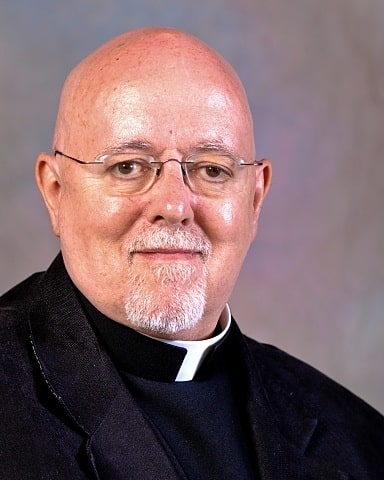June 25, 2012
This is the tenth in a series of previously unpublished reflections from the 1854 spiritual notebook of Paulist Founder, Servant of God Father Isaac T. Hecker. The reflection series is being made public in conjunction with Father Hecker’s cause for canonization. Following the reflection is a response from Father Paul Huesing, CSP.
Vocation
It is the will of God that each one of us seeks to find his vocation and to follow it with fidelity. To know our vocation is one of the most important points of our life; it is the road God has destined us to walk.
To begin with, we must have a just and distinct idea of our vocation, a knowledge of its particular duties and due sense of our obligations if we would make progress towards perfection.
The place of one’s vocation is where one finds the divine will and the greatest ease for executing it. The clearer our destiny appears, the more we are aware and convinced that its realization depends less upon our action than on the unconditional surrender to what God wishes of us. If we were more peaceful, calm and resigned, we would see more clearly what God wishes of us in particular and perceive better the supreme wisdom of His Providence in its disposition of us.
A religious vocation consists in an extraordinary love of God. The highest vocation one can have upon earth is to be called to obey in a perfect manner the commandments and counsels of Almighty God, and to lead others to do the same by the speediest and most efficacious means. St. John of the Cross says, “God has established us in the sacred ministry to compel those he has called to enter into his cloister.” “And the Lord said to his servant, Go out into the highways and hedges and compel them to come in that my house may be full.” (Luke 14:23)
A Response from Father Paul Huesing, CSP
These quotes from his 1854 notebook make clear for Hecker the authentic discernment of one’s vocation was a benchmark of vast significance on life’s journey. By vocation, of course, he meant a person’s understanding of God’s will for his or her life. In what pursuit(s) was a person called to devote lifelong energy? What personal goals in life should a person put in place, or rather accept as revealed for him or her, by God? The discovery of vocation is an early life task. The subsequent living out of the vocation discerned is what brings peace and fulfillment.
People today encounter at least two major challenges that impinge on vocational discernment in a way rarely – if ever encountered in Hecker’s time. The first challenge is that many people today do not accept that there is a spiritual dimension to life. For them including prayer or spiritual reflection in making important life choices literally makes no sense. A different sort of challenge is faced by people whose spiritual life is so idiosyncratic that they have no important spiritual norms outside the scope of their own reflection.
Hecker’s own spiritual journey began with an intense religious experience that hounded him. He had no doubt that it was God’s gift. That he knew. Yet he also knew that he could not grasp its meaning without outside assistance. And so he turned to Orestes Brownson, then to the extraordinary community at Brook Farm and the gentle society of Concord, Mass. Finally, he found himself led to the Catholic Church and to priesthood. There he found his call and his peace and his life’s work.
Those today called to further the work of Servant of God Isaac Hecker know their vocation is to help men and women of our age discover God’s will for their lives “by the speediest and most efficacious means.” They invoke the Holy Spirit in the most secular of settings and call themselves and those they serve to growth in wisdom and grace.
Father Paul Huesing, CSP, is director of formation for the Paulist Fathers and superior of St. Paul’s College in Washington, D.C.
About Father Isaac Hecker’s 1854 Spiritual Notebook
Servant of God, Father Isaac Hecker wrote these spiritual notes as a young Redemptorist priest about 1854 and they have never been published. Hecker was 34 years old at the time, and had been ordained a priest for five years. He loved his work as a Catholic evangelist. The Redemptorist mission band had expanded out of the New York state area to the south and west, and the band’s national reputation grew. Hecker had begun to focus his attention on Protestants who came out to hear them. To this purpose Hecker began to write in 1854 his invitation to Protestant America to consider the Catholic Church, “Questions of the Soul” which would make him a national figure in the American church.
Hecker collected and organized these notes that include writings and stories from St. Alphonsus Liguori, the Jesuit spiritual writer Louis Lallemant and his disciple Jean Surin, the German mystic John Tauler, St. Thomas Aquinas and St. Jane de Chantal among others. These notes were a resource for retreat work and spiritual direction and show Hecker’s growing proficiency in traditional Catholic spirituality some ten years after his conversion to the Catholic faith. They are composed of short thematic reflections.
Publishing and disseminating the writing of Servant of God Isaac Hecker is the work of the Office for Hecker’s Cause.

